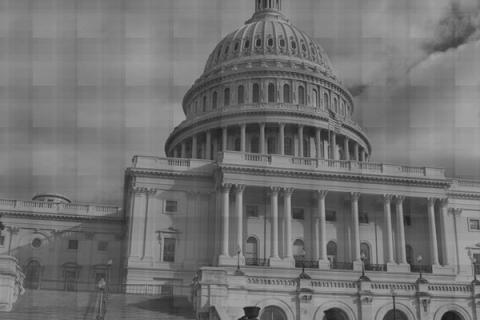The California Court of Appeals has upheld a lower court's ruling denying a preliminary injunction against the enforcement of Proposition 14 in Field v. Bowen, one of the pending lawsuits against the top-two open primary system. The court held that the so-called "party preference ban" and the prohibition against counting write-in votes in general elections under top- two are constitutional.
The lawsuit challenges two aspects of the law implementing Proposition 14, which was approved by voters in the 2010 primary elections. The "party preference ban" prohibits candidates who are affiliated with parties that are not officially recognized by the state from designating their party preference on the ballot, and requires them instead to leave that space on the ballot blank or to state that they have "No Party Preference." Another statute prohibits the counting of write-in votes cast in general elections under the top-two system.
Four of the plaintiffs in the suit are write-in voters seeking to ensure that their votes will be counted in future elections. The other two plaintiffs are members of minor parties not officially recognized by the state, who wish to designate their party preferences on the ballot in future elections for the US House of Representatives.
There are currently six political parties officially recognized by the state: the American Independent Party, the Democratic Party, the Green Party, the Libertarian Party, the Peace and Freedom Party, and the Republican Party. To achieve qualified status, a party must either have received 2% of the statewide vote in the previous gubernatorial election, or its membership must be equal to or greater than 1% of the vote in the previous gubernatorial election. Additionally, it can gather signatures equal to or greater than 10% of the vote in the previous gubernatorial election.
The lawsuit alleges that the party preference ban discriminates against candidates who are affiliated with parties that have not yet achieved official status, since it does not allow them to state their party preference on the ballot. The court held, however, that unqualified parties are not parties as defined in the elections code, which states that ""party" means a political party or organization that has qualified for participation in any primary election." Though the elections code privileges the notion of party, and grants certain rights to qualified parties over non-qualified parties, it is noteworthy that Proposition 14 replaced the old system of party-nominated offices with a system of voter-nominated offices.
The implementation of Proposition 14 also resulted in a number of outright contradictions within California's elections code. Section 15340 states that every voter may "write the name of any candidate for public office . . . on the ballot of any election." A separate statue provides that space shall be provided for write-in votes on all ballots (13207(a)(2)). However, section 8606, added to the code by the Top Two Open Primary Act, prohibits the counting of such votes in a general election. It reads:
“A person whose name has been written on the ballot as a write-in candidate at the general election for a voter-nominated office shall not be counted.”
Arguing that the general election does not constitute a separate election from its primary, but is rather the second round of voting in the same election, the court held that the prohibition of write-in votes in the general election is constitutional and consistent with the intent of Proposition 14, since write-in voting is not prohibited in the primary election. In its ruling the court furthermore stated that "no lines or spaces for write-in votes for voter-nominated offices can be placed on general election ballots," effectively overturning the traditional interpretation of sections 15340 and 13207 in the elections code.
The full ruling can be found here (pdf). The California Independent Voter Project (CAIVP) was an intervener in the suit on the side of the defendants.

